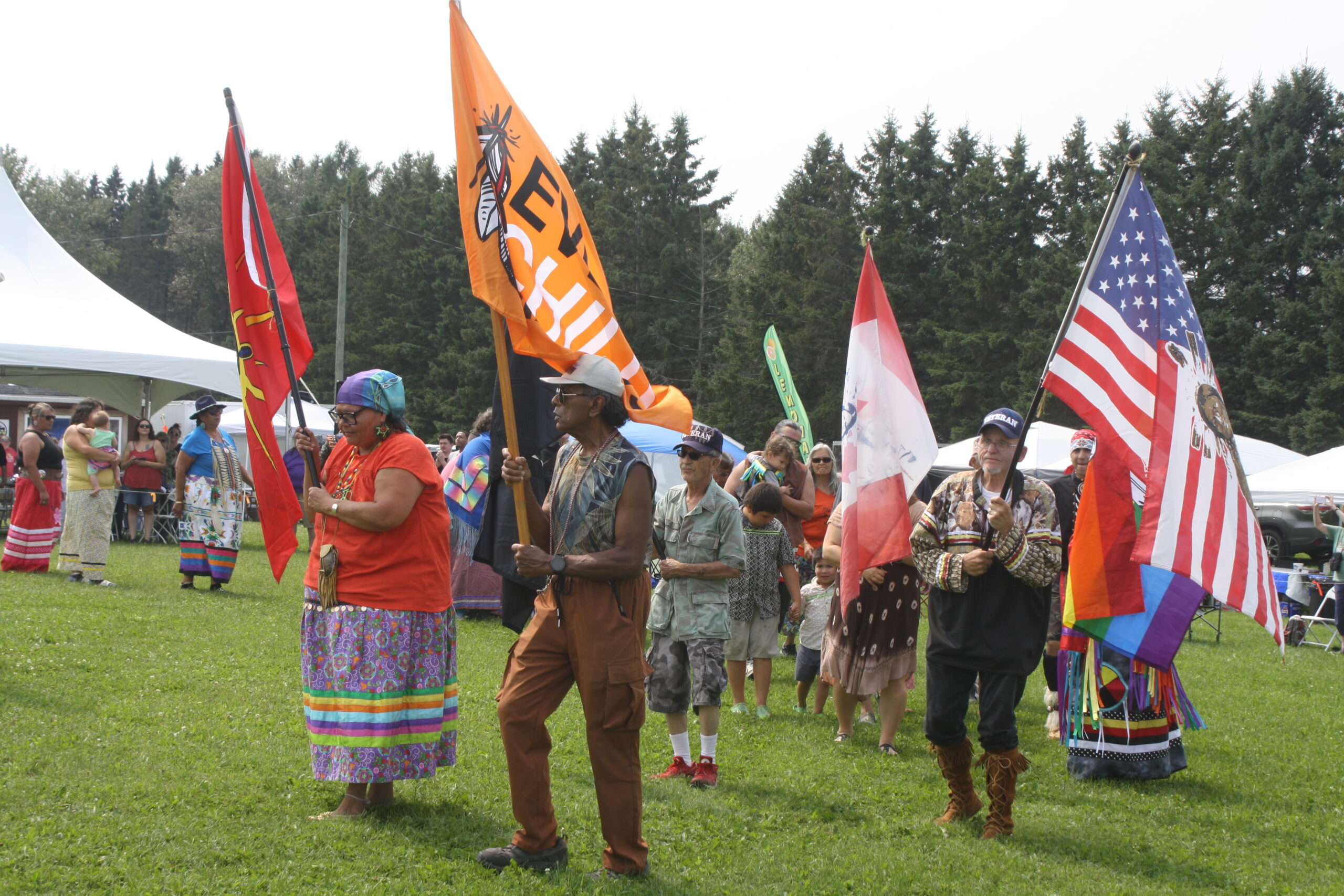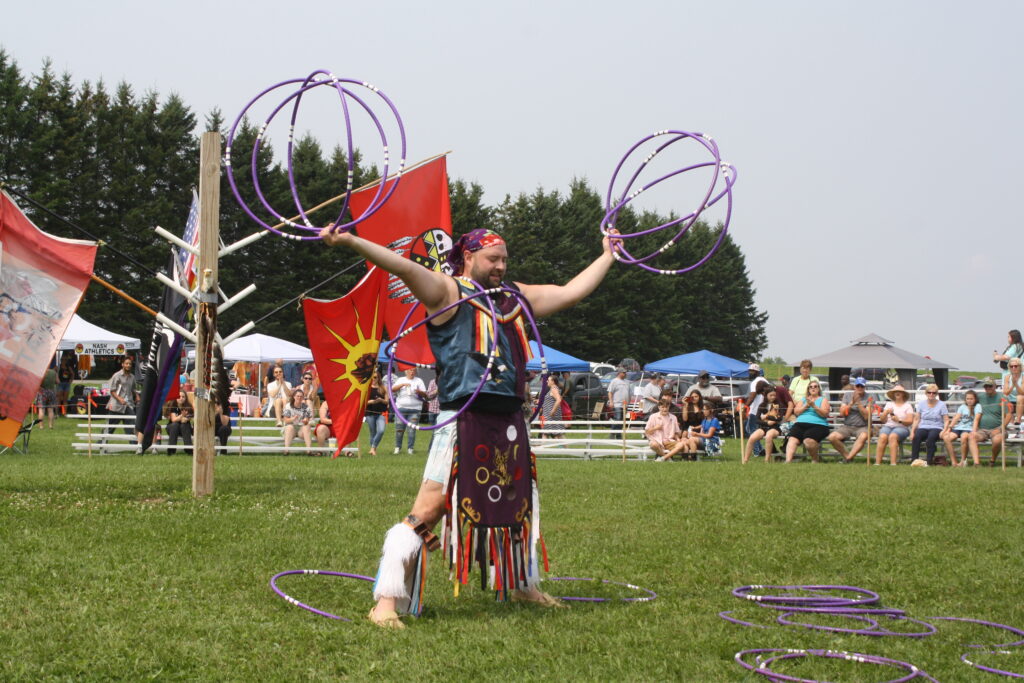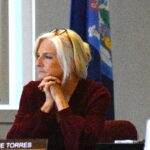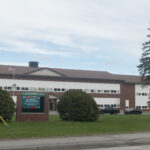
CARIBOU, Maine – The dancing circle at Spruce Haven quickly filled with people young and old Saturday, eager to join in the Mi’kmaq Nation’s Mawiomi.
Most were tribal members dressed in traditional regalia, but others were welcomed guests from other tribal and local communities, all stepping to the beat of drums that played nearby.
In the last 30 years, the dancing circle is not the only thing that has grown.
For the Mi’kmaq Nation, their annual Mawiomi, translated to “gathering,” has handed down the tribe’s most sacred traditions to its younger generations. Along the way, non-tribal community members have also been welcome to join and witness a culture within Aroostook that has survived years of turbulent history.
“There was a time when we didn’t have the freedom to speak our language and practice our traditions. Our ancestors prayed for us, and now our way of life has survived,” said tribal member Donna Augustine, before her opening prayer Saturday. “Our children can speak their language and attend our ceremonies.”
On Saturday, tribal members carried flags to the middle of the dancing circle, including the American, Canadian, Mi’kmaq Nation, POW/MIA and Pride flags, and those that honor Native veterans and Mi’kmaq children who endured residential schools in the U.S. and Canada.
Special guests the Indian Bay Singers from the Wagmatcook First Nation in Cape Breton, Nova Scotia, drummed and sang to honor all flags and Mi’kmaq veterans, while those in the grand entry and guests continued standing out of respect.
The Mi’kmaq women’s drum group, Mawitan’ej E’pijig, also performed throughout the day, as did Richard Lush, a well-known hoop dancer from Lennox Island First Nation in Prince Edward Island.
Augustine recited her opening prayer Saturday in the Mi’kmaq language, using the very words that her ancestors would have been barred or discouraged from speaking.
Like many cultural traditions, the modern version of Mawiomi, which means “gathering,” started out small and tribal family-focused, said Chief Edward Peter-Paul.
Mi’kmaq Nation, formerly the Aroostook Band of Micmacs, first formally celebrated Mawiomi in 1994 in Westfield before relocating to Spruce Haven, tribal-owned land in Caribou, several years later. It was partially a celebration of the tribe having gained federal recognition in 1991. The early 90s Mawiomi featured smaller-scale ceremonies, drumming, singing and dancing, mostly with tribal members and families.

Over time, the annual festivities, typically held the third weekend in August, grew to include tribal craft and food vendors and community organizations, and became a larger and more well-known event for local residents and visitors.
Through it all, Mawiomi’s purpose has remained the same: To keep traditions going within the youngest generations.
“If we didn’t hold events like this, that sense of cultural pride within our youth wouldn’t be as strong as we want it to be,” said Tribal Administrator Nichole Francis. “It helps them realize the meaning behind who we are.”
The Indian Bay Singers have performed at Mawiomis across East Coast Canada but this year marked their first time visiting the Mi’kmaq Nation’s events in Aroostook.
Madeline Joe and family followed her brother Jake Bernard, a member of Indian Bay Singers, to the Mawiomi for a chance to meet Aroostook tribal members.
Membertou, Nova Scotia native Joe was glad to see three of her children – Evaed, 14, Maryanne, 11, and Harlem, 6, and Kyler, 2, take part in the dancing.
“We grew up with these traditions and want to pass them down to my children,” Madeline Joe said.







